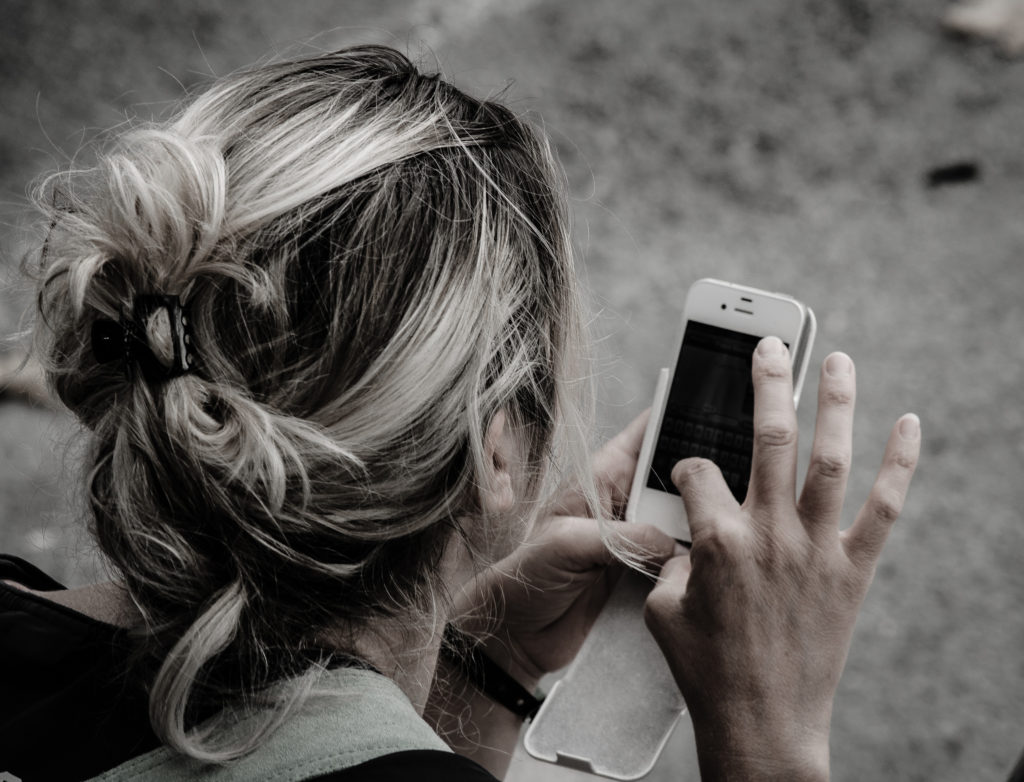With the recent proliferation of smartphone based mental health interventions, it is necessary to evaluate the efficacy and impact of these tools. A recent meta-analysis lead by Joseph Firth from Western Sydney University aimed to explore which aspects of smartphone interventions were associated with benefits to users.
“In the enthusiasm to realize the potential of apps for depression, it has become difficult to separate actual efficacy from overzealous aspirational claims. With thousands of mental health apps readily available through Apple or Google marketplaces, finding a useful tool supported by robust evidence to manage one’s depression is clearly a challenge,” the authors write.
“The increasing media promotion and accessibility of apps for mental health now presents a ‘duty of care’ issue towards ensuring that people have information and understanding of evidence-based digital treatments for depression.”

Smartphone-based interventions have positive potential, such as providing access to care for persons not able to access a mental healthcare provider or for those who the stigma associated with accessing care is too high. However, the efficacy and potential negative effects are still to be determined.
In this present meta-analysis, the effects of 18 randomized-controlled trials examining the effects of 22 different smartphone-delivered mental health interventions were examined. The included RCT’s assessed the effects of mental health interventions delivered on smartphone devices that included an outcome on depressive symptoms.
Smartphones were defined as “mobile phones with 3G or 4G internet connectivity, along with the ability to download, install and run external applications”. RCTs that utilized inactive and active control groups were included as well as those which compared smartphone interventions to antidepressant medication
Participants across all studies ranged from 18-59 years of age and in all but two of the included studies, some indication of mental health concern was a component of inclusion criteria. Intervention duration ranged from 4 and 24 weeks. Depression symptoms were measured using the Depression Anxiety Stress Scale, the Center for Epidemiological Studies Depression Scale, Beck Depression Inventory II, Patient Health Questionnaire, Hamilton Rating Scale for Depression, Hospital Anxiety Depression Scale, and Montgomery-Asberg Depression Rating Scale.
Overall effects
There was a small-to-moderate positive effect size of smartphone mental health interventions for reducing depressive symptoms when compared to control conditions. There was a moderate effect on depressive symptoms when smartphone interventions were compared to inactive control conditions and only a small effect when compared to active controls.
Population characteristics
On population comparisons, only those with self-reported mild-to-moderate depression showed significant reduction on depressive symptoms. There was no significant effect on the samples with major depressive disorder, bipolar disorder and anxiety. There was no indication that average age, gender distribution and sample sizes influenced observed effect sizes.
Intervention characteristics
The difference between those that included in-person feedback and those that did not include “in-person” feedback was significantly different. Smartphone interventions that involved “in-person” feedback had a small, nonsignificant effect on depressive symptoms. Those that did not use in-person feedback had a moderate positive effect.
There was no significant difference between interventions that were entirely delivered through the smartphone and those that were not self-contained. Those that were self-contained had a larger effect than those that were not self-contained.
Interventions that provided “in-app feedback” and those that did not provide “in-app feedback” were significantly different. Interventions that provided the “in-app feedback” had greater effect size than those that did not provide in-app feedback.
As smartphone based mental health intervention apps continue to be developed and gain popularity, it is important that we be thoughtful and thorough in understand the effects as well as positive and negative impacts these applications have on the users. Notably, the efficacy of these interventions was only assessed in these RCTs up to 24 weeks. Moreover, given that these are RCT’s it is worth noting the difference between efficacy and effectiveness.
Randomized-controlled trials are helpful in examining the effects of an intervention under ideal circumstances, while effectiveness trials determine if an intervention’s effect hold under real world conditions. While the results of this meta-analysis demonstrated efficacy, the question of effectiveness still stands. This study takes us one step in discerning the positive potential of these apps. However, the authors of this meta-analysis point out many questions that remain.
“The extent to which the observed effects on depressive symptoms arise from using the device itself, rather than the psychotherapeutic components of the intervention, should be examined and quantified in future research,” they write.
“Understanding both which psychological interventions are best delivered via a smartphone and which patient populations will most benefit from smartphone-based interventions will require further research.”
****
Firth, J., Torous, J., Nicholas, J., Carney, R., Pratap, A., Rosenbaum, S., & Sarris, J. (2017). The efficacy of smartphone‐based mental health interventions for depressive symptoms: a meta‐analysis of randomized controlled trials. World Psychiatry, 16(3), 287-298. (Full Text)















The fact that we’re even considering using smartphones as a remedy for “mental health symptoms” is an ironically sad commentary in itself. That said, it appears they do as well as antidepressants, and with no real side effects. Which is an even sadder commentary on the state of “mental health care” in the world today.
Report comment
“Smartphone interventions that involved ‘in-person’ feedback had a small, nonsignificant effect on depressive symptoms. Those that did not use in-person feedback had a moderate positive effect.”
The fact the phone alone does better than the phone plus a “mental health professional,” doesn’t bode well for the state of today’s “mental health” industry either.
Report comment
“Depressive symptoms”? Why does MIA reference articles and research that perpetuate “illness/disease talk”?
Report comment